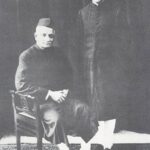Lalita Shastri: The Life and Legacy of a Silent Pillar of Strength
Lalita Shastri, the wife of India’s second Prime Minister, Lal Bahadur Shastri, played a crucial yet often overlooked role in her husband’s journey to national prominence. While Lal Bahadur Shastri’s life and legacy are well-known, Lalita’s contributions, both personally and within the context of Indian society, have been underappreciated. Known for her quiet strength, humility, and dedication to her family and country, Lalita Shastri was a vital figure in her own right, standing as a beacon of support to one of India’s most revered leaders.
This article explores the life of Lalita Shastri, her influence on her husband’s success, her daily life, and the enduring impact she had on society.
Early Life and Education
Lalita Shastri was born in 1905 in a small village in Uttar Pradesh, a region known for its rich history and cultural significance. Growing up in a middle-class family, she was instilled with values of discipline, simplicity, and selflessness. These values would later be evident in her role as a wife, mother, and the wife of a prominent national leader.
Lalita’s education, though not widely documented in comparison to that of her husband, was integral in shaping her understanding of the world. Like many women of her time, she believed in the importance of family and social duties, embracing her role as both a homemaker and a partner in Lal Bahadur Shastri’s political career.
Role in Lal Bahadur Shastri’s Career
Lalita Shastri’s life was intertwined with that of her husband, and her unwavering support was crucial in the achievements that marked his career. While Lal Bahadur Shastri took center stage as a leader, Lalita played a supportive role behind the scenes. Her contributions to his success were largely silent but incredibly powerful.
As Lal Bahadur Shastri rose through the ranks of Indian politics, eventually becoming the Prime Minister in 1964, Lalita’s role evolved. She managed their home and family, offering stability and support during the most turbulent periods of his political career. During times of political upheaval or international pressure, she was the emotional anchor that allowed him to focus on his national responsibilities.
Her understanding and support allowed Shastri to focus on leading the country during the 1965 India-Pakistan war, a critical time in India’s history. She was a silent but significant contributor to his ability to lead with strength and conviction.
Daily Life and Influence
Lalita Shastri’s daily life was a reflection of the values she cherished—humility, simplicity, and service. Despite the growing stature of her husband, she led a modest lifestyle, much like the ideals her husband promoted throughout his political career.
Her days revolved around caring for her family, managing the household, and offering quiet support to her husband. Even though Lalita’s life was primarily within the domestic sphere, her contribution to the emotional well-being of her husband was invaluable. Her guidance and wisdom were often sought by him, particularly in moments of personal or political crises.
Lalita’s influence was also reflected in the way she raised their children. While Lal Bahadur Shastri focused on national issues, Lalita ensured that their children grew up with the right values—respect for culture, a sense of discipline, and an understanding of the importance of contributing to society.
Significance and Impact on Society
While Lalita Shastri may not have been a public figure in the same sense as her husband, her influence on Indian society cannot be understated. She played a crucial role in supporting her husband’s vision for India, one that emphasized unity, simplicity, and dedication to the country’s growth. Here are a few of the important aspects of her significance:
- Supporting a National Leader: Lalita was instrumental in providing emotional and practical support to Lal Bahadur Shastri, enabling him to be a focused and effective leader. In a way, her influence can be seen in the strength of his leadership during the 1965 India-Pakistan war and his subsequent efforts for peace.
- Embodiment of Simplicity: Lalita Shastri’s life was a reflection of the values her husband stood for. In an era when politics was often entangled with glamour, she was a beacon of simplicity, showing the nation that leadership and service didn’t have to be extravagant.
- Strength in the Background: As a supportive wife, Lalita never sought the limelight for herself. Her strength came from her quiet dedication to her family and country, which had a profound impact on her husband’s ability to serve the nation.
- Role Model for Indian Women: Lalita Shastri’s life offered a model of how women could support and uplift the causes of their husbands while maintaining their own sense of identity and values. She demonstrated that there is power in the seemingly invisible contributions women make within the family and society.
FAQs About Lalita Shastri
Q1: What was Lalita Shastri’s role during the 1965 India-Pakistan war?
Lalita Shastri was not directly involved in the political or military aspects of the war, but her role as a supportive wife allowed her husband, Lal Bahadur Shastri, to focus on leading India through this crisis. Her emotional support was critical during this time.
Q2: Did Lalita Shastri have a public career?
Lalita Shastri did not have a public career in the way her husband did, but she had a significant influence on his career and the well-being of their family. She played a pivotal role behind the scenes in maintaining the stability of the family.
Q3: How did Lalita Shastri contribute to India’s development?
Lalita Shastri’s contributions were indirect but substantial. By maintaining a strong family foundation, supporting her husband, and upholding the values of simplicity and integrity, she contributed to the broader cultural and political ethos of India during a critical time in the nation’s history.
Conclusion
Lalita Shastri’s life was a testament to the power of quiet strength, simplicity, and unwavering support for her family and nation. Though she did not seek the spotlight, her influence was immeasurable. By providing the emotional stability her husband needed to lead India through some of its most critical moments, she played a crucial role in shaping the nation’s history. Lalita Shastri’s legacy lives on as a symbol of the silent yet powerful contributions that women make in shaping the course of history, both behind the scenes and in the hearts of those they support.










